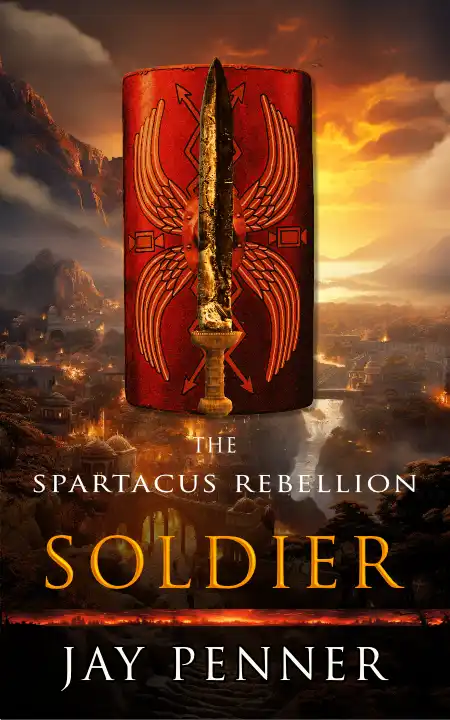The Forgotten Millions: The Human Cost of Casual Brutality in Ancient Conquests
The annals of human history are filled with numerous episodes of what can be described as “casual brutality,” instances of horrific violence and suffering perpetrated with casual indifference. The ancient world was particularly rife with such occurrences, as powerful leaders frequently led their nations into brutal wars, massacres, and genocides.
One prime example is Julius Caesar’s invasion of Gaul, an event recounted in his own written reports. An estimated one million Gauls lost their lives, while another million were sold into slavery between 58 and 50 B.C.E (Goldsworthy, 2006). To the modern observer, these figures appear shockingly high. However, in Caesar’s accounts, they’re conveyed with chilling indifference, as though such losses were an inconsequential part of his quest for glory and domination. Chapter after chapter, in his book “The Conquest of Gaul,” we read Caesar talking about how he engaged in battles, put people to the sword, and sold off people to slavery. The perplexing thing is—Caesar was considered a reasonable and even a merciful man, compared to, for example, Pompey, who was called a “teenage butcher.”
Similarly, the Assyrian invasion of Elam in 647 B.C.E presents another account of ancient callousness. The king Ashurbanipal, not content with merely defeating Elam, ordered the complete destruction of their civilization, including their cultural heritage. The Assyrian forces reportedly left behind a wasteland of “mounds of heads, hands, and feet” (Fuchs, 1994). Detailed population estimates are challenging to make, but the Assyrians’ records of their chillingly methodical genocide suggest a massive scale of loss. They apparently left nothing as sacred—even desecrating graves and burning the remains. Another Assyrian King, Assurnasirpal, boasts about how he flayed his enemies and “threw little boys and girls into the fire.”
In the 4th century B.C.E, Alexander the Great, a figure often romanticized in history, was responsible for the massacre of innocent civilians during his Indian campaign. Arrian, the ancient historian who wrote the most definitive account of Alexander’s invasion of India, estimates that 80,000 people were killed in the city of Multan alone (then called “Mallians”). This excludes the numerous massacres his army inflicted on towns and villages they came across as they sailed south on the Indus on their way out of India.
It is reported that during the Second Punic War (Hannibal vs. Rome), from 218-201 B.C.E, an estimated one-fifth of Rome’s adult male population perished, a figure equivalent to some 200,000 men (Eckstein, 2006). These numbers bear stark testimony to the widespread acceptance of human suffering as a commonplace feature of warfare. In Italy, at the height of slavery, almost one-third of Italy’s population were slaves who drove the economic engine of the Republic and the later empire, toiling under relentless brutality. This led to three slave uprisings (called the Servile Wars), the most famous being the Spartacus Rebellion which ended with a Roman general reportedly crucifying six thousand slaves along the Roman Appian Way.
In the retelling of these monumental moments, we often lose sight of the human lives behind these grand narratives. We forget the families torn apart, sold to slavery, or slaughtered without a second thought. While it is true that the modern world inflicts much suffering, the ancient world was casually more brutal with far greater frequency and “atrocity density.” The figures we laud as heroes and great men often achieved their status on the back of innumerable human lives. This forgotten dimension of history serves as a potent reminder of the need for a more compassionate world, one that learns from the past, condemns brutality, and values every life.
4.5/5 from 4000+ ratings (overall). Grab a thriller from Jay.
For Honor. For Vengeance. Or For Rome?
Thrace, 83 B.C.
Spartacus, son of a Maedi chief, is about to lead a band of his men into the heart of an enemy tribe to steal the idol of their sacred god Sabazios. He hopes that this daring incursion will make him worthy in his father’s eyes and the tribe that sees him more a philosopher than a warrior.
When this desecration brings savage retribution to his doorsteps, Spartacus does what no Maedi man would dream of doing, bringing dishonor to himself and his tribe. And now, the only way to douse the flames of shame and rage is by joining a Roman auxiliary that is preparing to destroy his enemy.
But the offended gods have different plans.
Fighting under a corrupt centurion, saddled with quarreling companions, and on a brutal march to wage war for a brilliant general with grand ambitions, Spartacus will learn what it means to be a skilled soldier, a warrior, and above all, a leader, even as he battles powerful forces that are about to put him on a bloody path to his fateful destiny.

Jay Penner’s highly-rated books regularly feature Amazon’s category bestseller lists. Try his Spartacus, Cleopatra, Whispers of Atlantis or Dark Shadows books. Reach out to him or subscribe to his popular newsletter.

